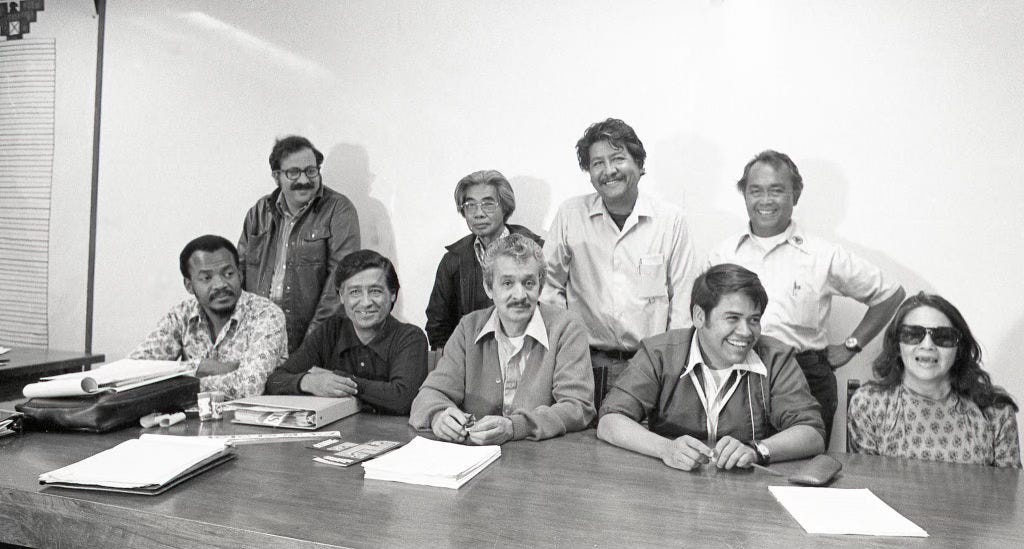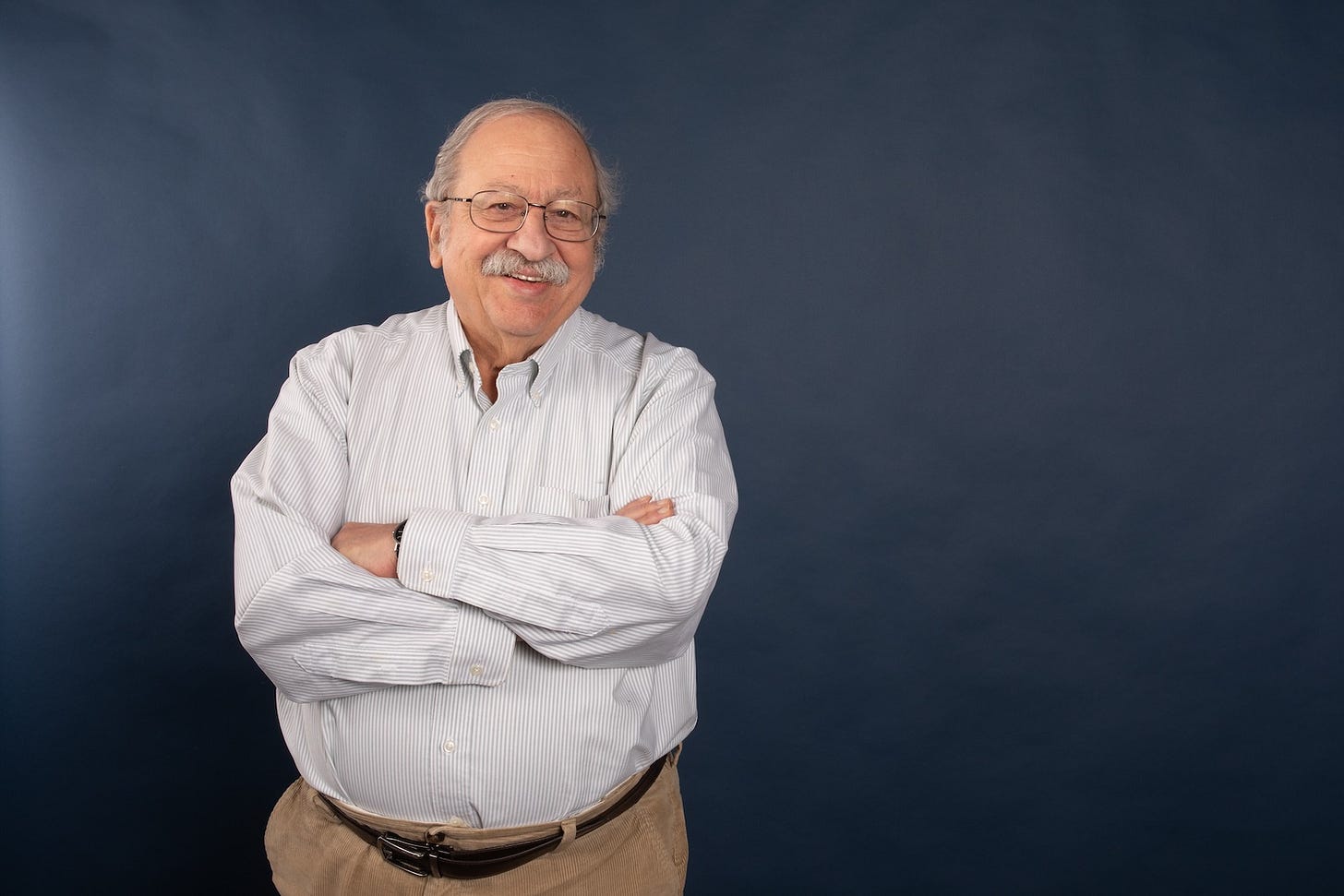American democracy needs an organizing renaissance
Marshall Ganz on the art and science of changing minds and building power
From participating in the American civil rights movement of the 1960s and working alongside César Chávez at the United Farm Workers of America (standing top left in the above image), to developing the winning grassroots strategy behind the 2008 Obama campaign, Marshall Ganz has been a key figure in some of the most storied and successful political movements of the past century. But, as detailed in his new book, his work is far from finished.
In People, Power, Change: Organizing for Democratic Renewal, Ganz imparts a lifetime of accrued wisdom and practical knowledge based on his experiences as an organizer in the field and as a researcher of the practice based out of Harvard. In it, he laments the rise of the donor class in equal proportion to the decline of grassroots organizing, but he also provides reasons for hope and a blueprint for change.
We had the privilege of speaking to Ganz recently about his views on the current state of our democracy and how we got here, as well as his hopes for a potential Harris presidency and the future of democracy in America. We’re also proud to provide an excerpt from his book, following the interview.
A request for those who haven’t yet joined us: The interviews and essays that we share here take research and editing and much more. We work hard, and we are eager to bring on more writers, more voices. But we need your help to keep this going. Join us today to support the kind of independent media you want to exist.
For those who may not be familiar with your work, talk a bit about your beginnings as an organizer, your philosophy of organizing, and what organizing is.
Organizing is a form of leadership rooted in Rabbi Hillel’s three questions: If I am not for myself, who will be for me? If I am for myself alone, what am I? If not now, when? Leadership, in turn, is the adaptive, creative, initiative-taking practice of dealing with uncertainty, because when the system is working, what do you need leadership for? And because of the uncertainty, it is a head (strategic), hands (skills), and heart (courage, hope) practice. So, I define leadership as “accepting responsibility for enabling others to achieve shared purpose under conditions of uncertainty.
Organizing is a form of leadership that begins by asking not “what is my issue” but “who are my people” (constituents, not clients or customers); “what is the change they need” (they need, not what I think they need for should need); and “how can they turn their resources into the power they need to achieve that change?” There are 3 outcomes; did we win the fight; did we come out of this stronger as a community; and did we develop new leadership? It consists of 5 practices: building relationships, storytelling, strategizing, acting, and structuring. Organizing is not “mobilizing,” which, like rallies and protests, can at times be useful tactically. Organizing is about building the collective capacity to decide on tactics and act on them
You make a great point in the book about the difference between democratic governance and markets — in collective decision-making, like in a democracy, people get a voice, in return for loyalty. In a market, people can exit - you just don't show up if there's no benefit; there's no loyalty.
Correct. That’s why a democracy requires both participation and governance, not participation alone. Governance is about how defections are made, how accountability is practiced, how leadership is chosen, where the money comes from — and how it got there. This also builds in the spaces in which individuals can learn with each other, weigh options, and secure support. NGOs are not governed democratically nor are numerous advocacy groups, mobilizing groups and the like. So, at best, like a market, they aggregate individual preferences and assert the good of the whole. Except it’s not. Philosopher Elizabeth Anderson argues that most of our waking hours are in “authoritarian dictatorships” in which we own nothing, do what we are told, and have to resist constant incursions into our private lives. So where are we supposed to practice democracy? This also is why all the attacks on government, especially since the 1970s, have been attacks on democracy itself
And this really captures the problem with a core conservative notion that's become received wisdom for Americans in general - that government should be run like a business. Why have so many people bought into the idea of governance as a transactional marketplace?
This goes back to the 70’s and the success of the whole neoliberal paradigm, deification of markets and evisceration of democratic institutions — without any effective resistance from those whose interests were being savaged. How well did any of us understand what was happening, how many institutions were afraid of losing “access” to powerful people and powerful places… and then came along the DLC/Clinton, a direction that sadly was not reversed by Obama.
This has gone hand in hand with the notion that money is speech (and rulings that have made this the law of the land). Again, this makes sense for billionaires, but why do regular people accept that ownership is more important than citizenship? That is, why do people not get the value of democracy?





